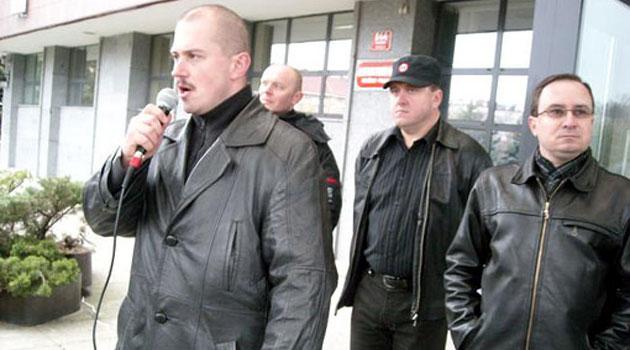USA tells Slovakia to clean up its courts, prevent attacks against Romani people

News server Aktuality.sk reports that the US State Department’s human rights
report for 2012 has described the Slovak Republic as a country where judges
abuse their power, the judicial system is imbalanced, and discrimination and
violent attacks against Romani people are ongoing. According to the report,
discrimination against ethnic minorities, the Roma in particular, is common.
Romani people are described as living in forgotten, miserable communities.
NGOs report racially motivated attacks against minorities, especially Romani
people.
The report described a protest march by supporters of the KDU-NS party in
March 2012 in response to a fire at Krásna Hôrka Castle. Police successfully
prevented the group from attacking a Romani settlement there.
The report also discussed Marián Kotleba, who has said he wants to "purge his
country". His promoters have shouted “Let’s take out the garbage” and many other
similar slogans at various public gatherings.
Kotleba, considered by many to be a representative of the extreme right, has
made many unflattering remarks about the Romani minority, to put it politely. In
2012 he wanted to buy land out from under Romani people in the village of
Krásnohorské Podhradí in order to “purge” them from it.
Kotleba and his followers convened many marches attempting the unsuccessful
“clean-up” of the village. Police intervened and did not allow the mob to access
the land.
The US report also criticizes Slovakia over the essential matter of the fact
that according to current legislation, the judiciary there is not independent.
In practice, courts are said to be grappling with many problems, such as
corruption, inefficiency, and intimidation of judges.
This lack of integrity and predominance of irresponsibility continues to
undermine the independence of the justice system. In many cases, judges have
confessed they were subjected to pressure, primarily influence-peddling and
intimidation.
There is a lack of transparency in Slovakia and the country continues to
experience issues of corruption and nepotism. Officially, the law sanctions
corruption, but the government does not always enforce the law effectively and
some bureaucrats have been involved in corruption scandals with impunity.
Entrepreneurs perceive corruption in Slovakia as a very serious matter.
Results of the Business Environment Index for Slovakia show that corruption is
one of the greatest barriers to and long-term problems for business there.
The Constitution of the Slovak Republic guarantees freedom of speech and the
press. In practice, the media operate in a pluralistic system and journalists
have room to express their opinions, even though speech rights are limited in
certain cases, specifically, when a group is labeled extremist. The law bans
defamation of nationality and sentences those convicted of it to a minimum of
three years in prison.